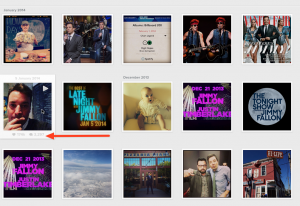The English language has been a dominant force in both the offline and online world for some time now. However, in recent years there has been a decline in the popularity of English in the digital sphere. In 1996 figures showed that more than 80% of online content was in English, but the figure fell dramatically to just 40% in 2010. Research by Álvaro Blanco suggests this will continue to fall as language diversifies online.
This shift in digital languages can easily strike fear in the hearts of businesses going global that function predominantly in English. But how did this change happen, and is it necessarily a bad thing?
How English populated the net
In 2009, UNESCO reported that 45% of online content on the web was in English, outranking the next language of Russian, which only has 6.2%.
Due to the vastness of the British empire (dating from the late 16th and early 18th centuries), the English language has had a significant global influence. England’s historical background of colonialism covered around a quarter of the world, which has led to variations of English being spoken in North America, the Caribbean, New Zealand and Australia. Since then, it has become a hugely popular language in business, communications, science and technology.
As the internet was developed in the UK and US, much of the original content was written in English, whilst internet moguls including Google, Youtube and Facebook were started by English speakers, thus the language is ingrained into much of the internet’s history.
English is retreating from the forefront of digital languages
The development of technology in more countries has given online access to a wider audience. Popular services, like online chat interpreters for businesses talking through instant messaging (responsible for translating what each party types in near real-time), have also been breaking down language barriers. They have led to a decreased need for English as more companies use the native languages of their audience. In fact, it has been predicted that universal translators will be available on computers in the next decade to interpret language with the accuracy of a human translator.
Moreover, there has been a rise of Asian superpower languages such as Mandarin. According to UN Broadband commission, the amount of internet users using Chinese is set to overtake English language users, with numbers climbing each year. This results not only in an increase in users using Mandarin but it offers the chance for more content to be created in the user’s native language.
Combined with the constant rise of social media, English is retreating as more platforms become accessible through a range of languages. Although 41% of tweets are in English, the expressive platforms of social media connects language communities together and adds to the rise of other languages on the internet.
Perhaps English should lose its dominion as the major digital language
It is the continued dominance of the English language which is causing concern. Despite the fact that Chinese is the most widely spoken language, it makes up only 2.1% of the internet, with the second most spoken language, Spanish, making up 4.8%. Linguistically, English is unsuitable for international communication and the wide use of English tends to polarise global internet users.
It is thought that the continued use of English on the internet is driving out other languages, reducing language diversity. It is even being blamed for killing some languages, with recent research showing a decline in the amount of languages spoken worldwide. Only 5% of all languages will make the transfer to the digital world and the dominance of English is pushing out others. The reduction of English on the internet offers a chance for other languages to be used which can have positive effects on communities all over the world.
Digital & Social Articles on Business 2 Community(7)









